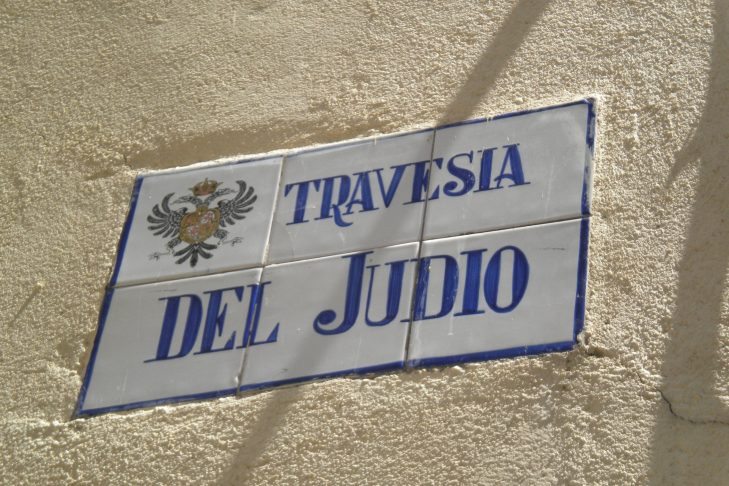The Latin American Jewish & Gender Studies project has recently been established at the Hadassah-Brandeis Institute (HBI). The groundbreaking project is the brainchild of Dr. Dalia Wassner, a cultural historian who specializes in Latin American studies. Wassner recently spoke to JewishBoston about the initiative, which will offer related courses, support scholarly research on Latin American Jewry and gender, as well as mentor students. As Wassner noted, after Israel, the United States and France, the 22 republics of Latin America make up the fourth-largest Jewish population in the world. The time is ripe for Jewish studies to include Latin American Jews in its purview.
For Wassner, this translates into understanding Latin American Jewry as a diaspora within the Jewish diaspora. She observed that in the last half-century, between 150,000 and 200,000 Latin American Jews have left their home countries. Yet 400,000 Jews remain in Latin America. “Through the Latin American Jewish & Gender Studies project, we want to understand the push-pull factor of Jews who are still in Latin America and Jews who have left,” she said. “How does the Jewish leave-taking affect those who have stayed? And how do you reconstruct an identity? Do Jewish Latin Americans in this country think of themselves as Jews, as Latin Americans? How does that identity get reworked and immersed into a community? The intersection between Jews and Latin Americans matters in the United States, and HBI is the first institute to dedicate a project that, at its mission and core, is about gender and Latin American Jewry.”
Wassner comes by her enthusiasm and expertise for the project naturally. She is a Mexican Jew who, although born in the United States, lived in Mexico during her teenage years. In 2013 she published her Ph.D. thesis as a book called “Harbinger of Modernity: Marcos Aguinis and the Democratization of Argentina.” She will launch the Latin American Jewish & Gender Studies project to the general public at the JCC in Newton on Thursday, Nov. 1. The program will feature Chilean Jewish writer and Wellesley professor Marjorie Agosín’s interpretive picture book of Anne Frank’s diary, “Anne: An Imagining of the Life of Anne Frank.” Wassner wrote the introduction to the book.
The Latin American connection to Anne Frank is not an arbitrary one. There is an Anne Frank House in Buenos Aires. The two-story structure was once a safe house for leftists during Argentina’s military dictatorship from 1976-1983, when as many as 30,000 people—including a significant number of Jews—“disappeared” through kidnappings and executions. Wassner thinks of the Anne Frank House in Argentina as “the Latin American application of why Holocaust memories matter, as well as why it matters to carry on those memories. It’s about doing justice to the past, as well as a dialogue about totalitarianism.”
In Wassner’s introduction to Agosín’s imagining of Anne Frank’s life, she writes: “Anne’s reality delivered instead of a survived life, a famous victimhood still tangible at Prinsengracht 263. Yet the girl who is so often quoted for enduring belief in the good of mankind while experiencing the worst of its machinations is adopted here by Agosín not as a reassuring voice to a humanity that allowed her victimization, but rather as a testimony of her own doom resulting from her witnessed failure of societal courage.”
The Nov. 1 event will feature a dramatic reading of Agosín’s book by the director of drama therapy at New York University. The reading will be followed by a conversation Wassner will moderate focusing on the contemporary resonance of Anne Frank’s story. “We as women and Jews have witnessed this before,” she said. “It is not a competition of victimhood. It’s not a question of which genocide was worse; that is not a conversation we ought to have. But we do have a collective memory of the Holocaust as women and Jews that is transgenerational and transnational. It’s important not only to us, but to the rest of society who could benefit from imagining Anne Frank today.”
Wassner has two more events planned in the winter and spring of 2019. One is a conversation with Latin American clergy in Boston. The panel will feature Cantor Elias Rosemberg, who will host the program at Temple Emanuel. Rabbis Claudia Kreiman and Sonia Salzman will join Rosemberg. Said Wassner: “We Latinos are not only here and thriving, but we’re leading Jewish communities in the United States. Their congregants are interested in their Latino heritage.”
Ruth Behar, a Cuban-Jewish anthropologist and MacArthur Fellow, is scheduled to come to the annual Brandeis Festival of the Creative Arts in the spring. Her appearance is co-sponsored with Brandeis alumni. Behar was born in Havana and has written extensively about Cuban Jewry before and after the Revolution.
While Wassner is dedicated to the academic part of the Latin American Jewish & Gender Studies project, she is clear that “this is not simply an ivory tower initiative. I envision it as a project that will link the community and the university. It is a project that intersects community and academia through culture.”



